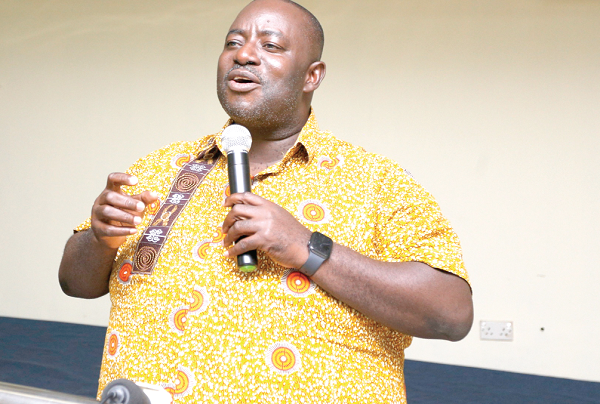The National Labour Commission (NLC) is poised to convene on October 2, 2024, to discuss a proposed nationwide strike by Organised Labour, stemming from the government’s failure to tackle the growing crisis of illegal mining, referred to as galamsey. This industrial action, scheduled to commence on October 10, is a response to years of ineffective governmental measures against unauthorized mining activities that have wreaked havoc on the environment and local communities. In an interview, NLC Executive Secretary Ofosu Asamoah noted the unique nature of this strike, indicating that it leans more toward political grievances rather than the typical employer-employee conflict. He acknowledged that the complexities surrounding the strike’s purpose require thorough review and suggested that the NLC would deliberate on practical steps forward during their meeting.
The escalation of illegal mining activities in Ghana has triggered widespread concern among various stakeholder groups, prompting Organised Labour to mobilize alongside other unions and associations. Their unified stance entails a demand for the government to declare a state of emergency regarding the galamsey crisis. They are also advocating for an immediate moratorium on all mining activities until the government can formulate a sustainable strategy to address these issues. The collective call for action highlights deep-seated frustrations regarding environmental degradation, loss of livelihoods, and the government’s perceived inaction on a critical national concern that threatens the socio-economic fabric of affected communities.
The proposed strike signifies a critical juncture in the labour landscape, as it marks a significant intersection between industrial relations and pressing environmental concerns. According to Asamoah, the nature of this strike transcends the conventional employer-worker dialogue, reflecting a growing dissatisfaction with the government’s broader political and environmental management. Organised Labour’s grievances echo a growing grassroots sentiment that demands urgent attention to the devastating effects of illegal mining on land, water resources, and public health. The situation necessitates effective dialogue, policy reform, and coordinated action to address the intricacies of illegal mining while ensuring the rights and economic opportunities for legitimate miners and affected communities are safeguarded.
The NLC’s deliberations will be crucial in determining a path forward, weighing the implications of the proposed strike against the backdrop of national interests, such as economic stability and environmental preservation. The potential for a nationwide strike raises significant questions regarding government accountability and its responsibility to enforce laws that protect citizens and their environment. If the strike proceeds as planned, it could further galvanize public opinion against governmental inaction and underline the urgent need for comprehensive regulatory frameworks governing the mining sector—a sector historically plagued by inefficiencies and corruption.
Moreover, Organised Labour’s demands resonate beyond mere cessation of illegal mining; they advocate for a complete overhaul of mining policy that prioritizes sustainability and community welfare. The necessity for a coordinated national response underscores the importance of stakeholder engagement in crafting solutions that are both effective and equitable. The issue of illegal mining has implications not only for environmental sustainability but also for the livelihoods of countless Ghanaians who depend on mining and agriculture, making it imperative for the government to take decisive action in collaboration with affected communities and organized labour movements.
As the NLC prepares for its meeting, the impending actions of Organised Labour could harness public support and galvanize change within the government. It calls for an earnest commitment to addressing illegal mining, ensuring that the measures taken are not only swift but also sustainable and just. The ability of all parties involved—government, labour unions, and civil society—to come together and find common ground in addressing the galamsey crisis will determine the future of Ghana’s resources and environment as well as the long-term stability of its mining sector. A balanced and inclusive approach to tackling illegal mining will be essential in achieving both environmental and economic goals in the coming years.














